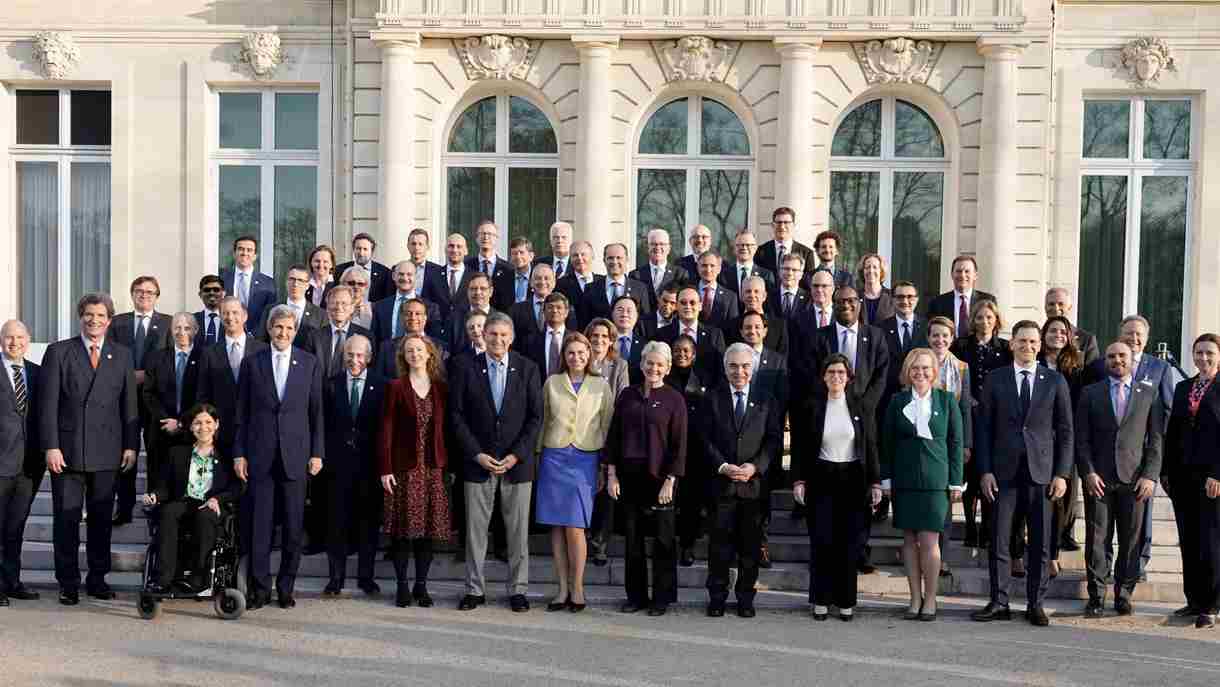The IEA Ministerial Meeting saw ministers gather from around the world in response to energy security and climate crises.
 2022 IEA Ministerial Meeting (courtesy of the IEA)
2022 IEA Ministerial Meeting (courtesy of the IEA)
Global energy leaders met in Paris for the International Energy Agency’s (IEA’s) 2022 Ministerial Meeting.
The meeting saw leaders discuss how best to strengthen energy security, reduce market volatility and accelerate global clean energy transitions.
International discussions
Chaired by U.S. Secretary of Energy, Jennifer M. Granholm, the two-day meeting consisted of energy and climate ministers from more than 40 governments.
It took place amid the severe energy market turmoil and energy security concerns triggered by Russia’s invasion of Ukraine last month. It also followed from the COP26 Climate Change Conference in Glasgow a few months prior, where governments raised their ambitions for reducing greenhouse gas emissions.
Ministers from the IEA’s 31 member countries said the meeting marks “the launch of a new phase of the Agency”, with a series of new mandates setting out its mission going forwards.
“In addition to ensuring global energy security, the IEA has a new guiding principle: supporting countries in the global effort to attain net zero greenhouse gas emissions in the energy sector by mid-century,” they said in a joint communiqué.
Energy transitions
Achieving net zero emissions by mid-century would give the world an even chance of limiting the rise in global temperatures to 1.5°C, which is a critical threshold for avoiding the worst effects of climate change.
The new IEA mandates cover energy security during the transition and lead the global energy sector’s fight against climate change.
Significant emphasis was also placed on expanding the IEA’s work on the critical minerals needed for clean energy technologies.
“Today, IEA Member Countries and the European Commission banded together on actions to support Ukraine, stabilize the global energy market and ultimately end our reliance on nations that weaponize fossil energy,” stated Secretary Granholm.
“We are committed to a clean energy future that will create millions of good-paying jobs, mitigate the destructive impacts [of] climate change and ensure a peaceful energy future.”
“The energy world is changing fast and needs to change faster still,” said IEA Executive Director Fatih Birol.
The IEA also received a significant funding boost from governments to enable it to significantly scale up its work supporting the transition to clean energy in emerging economies.
Energy topics
Over the two days, ministers, business leaders, investors, civil society representatives and others discussed a range of crucial energy topics.
A special event was dedicated to how to better adapt policy, regulatory and legislative frameworks to accelerate deployment of clean energy and low emissions technologies.
Ministers also underscored the importance of ensuring that clean energy transition policies are people-centered. This extended to accounting for issues of fairness and inclusion and noting the need to sustain clean energy jobs and equitable opportunities.
Participants paid particular attention to the challenges and opportunities facing Africa as the world increasingly shifts towards clean energy. This included how international cooperation can best support African countries to reach energy and climate goals.
“The global transition to renewable energy puts Africa in the centre,” said Tinne Van der Straeten, Belgium’s Minister of Energy and a Vice-Chair of the Ministerial.
“The African continent has vast potential for wind and solar technologies, allowing for the development of onshore and offshore wind farms, large scale solar parks and green hydrogen facilities. It is an opportunity for the entire continent while also supporting other countries’ transition objectives.”
Closing comments
In the closing press conference, Birol and Granholm answered numerous questions about the way forward regarding the Russian invasion and the next steps towards net zero.
“We should be very careful [that] the fight against climate change should not be a victim of Russia’s invasion,” answered Birol in response to a question on how the climate transition might be negatively affected.
“We are in [an historical] turning point in energy policy making. But we have to make sure that energy security concerns should be an additional driver to reach our own clean energy goals.”
In response to a question on the recent increase in volatility experienced by the global metals markets, Birol outlined the IEA’s commitment to the security of critical minerals.
“IEA member countries have decided, in addition to the existing mandates on addressing the oil and gas security issues globally, [to task] the IEA to consider the critical minerals – their availability – as another energy security topic that [the] IEA should look after.”
